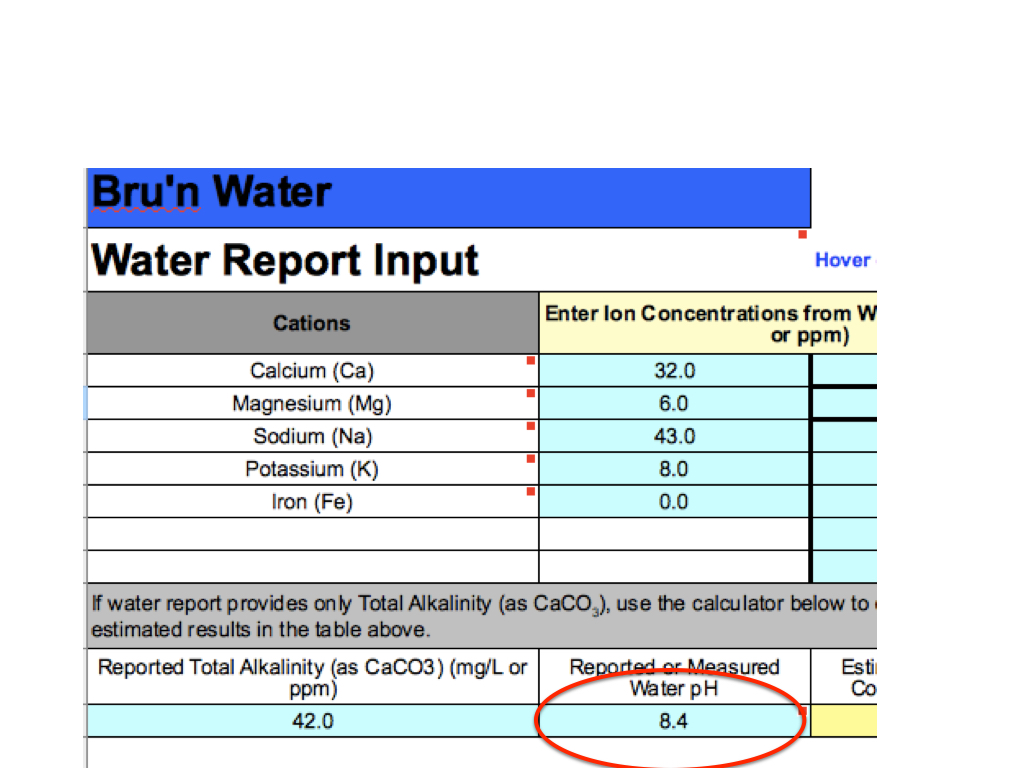@copper2hopper
The effect of the water is tiny. The grist contains orders of magnitudes more molecules affecting the pH than the small masses of various ions and dissolved solids in the water.
Think about it. Mineral additions to RO water are in the order of grams for 5-10 gallon batches. A typical grist for a a 5.5 gallon batch at 1.050 will be ~9.25 lbs in my setup.
Lets assume 10g of mass present in 8 gallons of strike/sparge water using tap or RO water with additions. That is an overly large estimate
The same mash will contain ~4000g of grist
That's a 400x difference in mass in water and the grist. I would surmise the effects on the water pH will be of a similar differing magnitude.
Water pH is not important. Mash pH is.
On the pH meter. I defer to @AJDelange 's expertise. I got a Hach Pro+ as it meets the acceptance criteria for a useful meter.
A meter that does not give stable readings is of no use. You're better off using the Bru'n water algorithm blind as it is in my experience accurate giving predicted measures of mash pH within about 0.05 of those measured with my meter.
Therefore, if you have a meter with less resolution than 0.05 you're better off not using it particularly if stable readings are not evident.
A good meter incorrectly calibrated will be similarly useless.
Sorry I can't be of more help. I just find Bru'n water to be extremely accurate in it's predictive capacity for mash pH. Using it completely negates the usefulness of a pH meter like the one you describe.
There is a good paragraph in Bru'n water on pH strips. They are seemingly useless. It's not worded as such but I'm thinking @mabrungard is too mannerly to parse it in such a way.
My meter has a resolution of 0.01 and I calibrate it before each mash. ( I brew fortnightly so that is no big chore)
Hopefully I am not uttering nonsense. It wouldn't be the first time I have been corrected in this forum that's for sure.




